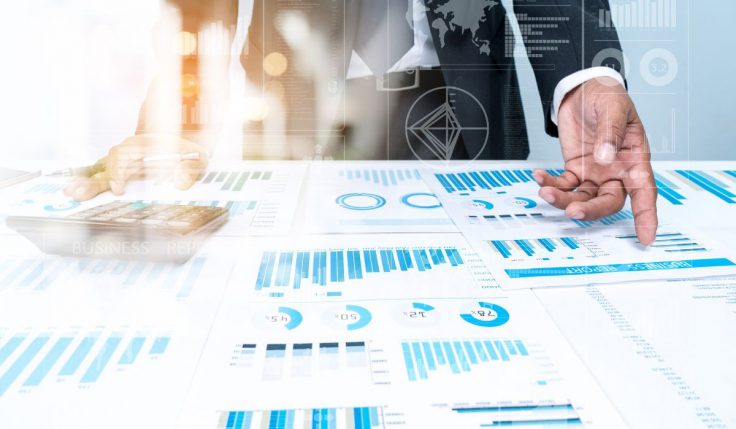One of the most important decisions you will ever make involves choosing a college major because it determines your academic and professional life. If you think about a Bachelor of Arts in Economics, you ought to know everything about that program and whether it has anything to do with your interests, skills, or professional goals. Here is an overview of what this BA in Economics entails and whether or not it is the right fit for you.
A BA in Economics provides a good understanding of economic theory, quantitative methods, and principles of resource allocation. Topics that generally make up a program of study include microeconomics, macroeconomics, international economics, and econometrics. These will give the student a broad overview of economic issues. The curriculum is designed to provide the student with both theoretical knowledge and practical analytical skills for the application of solving real-world economic problems.
Core Skills and Interests
Considering a BA in Economics requires thinking about whether your skills and interests will align with the demands of this field:
Analytical Thinking: Economics is based on data analysis and interpretation. If you enjoy working with numbers and using logic to solve complex problems, you’ll likely thrive in this discipline.
Current Affairs That would be a good improvement because you would realize much about how economies actually operate as well as the determining influences in global markets
Critical Thinking and Problem-Solving Skills Skills required for the evaluation of an economic model and realizing all these impact the business, the government, and society.
Communication Skills: The ability to convey complex economic concepts in both written and oral forms clearly is important because economists often need to present their analyses and recommendations to diverse audiences.
Career Opportunities with a BA in Economics
A B.A. degree in Economics will open wide ranges of career paths as well, with the skills a student of economics acquires knowledge about theories, principles, and methods of analytics used across industries. Due to its interdisciplinary character, paired with today’s data analytics skills, graduates in this discipline will be best-equipped to take on numerous difficult tasks within multiple sectors. Here are some of the key sectors and occupations for economics graduates:
Finance and Banking: They can enter into careers in finance and banking with rewarding careers that include the job of a financial analyst or investment banker. Their roles involve using economic principles to analyze the market, find opportunities to invest, and make strategic recommendations about financial investments for clients. They will have a lot to do with helping individuals and organizations make good use of their money.
Public policy and government Economists perform a very important role in the public sector where through data-driven analysis, they offer input in policy-making in government agencies as well as public institutions. They are involved in drafting and evaluating policies which will address key economic issues of concern and promote welfare to society. Their skills would be necessary in regulation, budgeting, and analyzing effects of legislative proposals hence advice on public resources and services.
Business and Consulting: Economic consultants offer special advice to organizations in the business world on how best to operate and navigate through economic challenges. They analyze the market conditions, study trends in industries, and aid businesses in developing strategies that increase profitability and efficiency. With the help of economic theories and analytical techniques, consultants assist companies in making sound decisions that lead to overall success.
International Agencies: Graduates can take up positions with leading agencies of international organizations, that is, the World Bank, International Monetary Fund (IMF), and other NGOS. In these posts, economists work on grappling with global economic issues, in development projects, and on projects related to poverty reduction and trade policies and sustainable developments. It is a strong contribution to the stability of economies and growth in the developing countries.
Possible Careers for Graduates
BA in Economics graduates are perfectly placed to take up any career. Besides the usual and traditional ones, the following careers are available:
Data Engineer: Develop and optimize data pipelines and tools that enable organizations to use data effectively in decision-making.
Economist: Analyze economic data and trends for market condition forecasts and advises public or private sector organizations on economic strategies.
Data Scientist: Conduct statistical analysis and apply machine learning techniques in discovering insights hidden in large datasets, crucial to any data-driven organizations.
Investment Analyst: Evaluate opportunities in investments, do financial modeling, and give suggestions that will be used in optimization of portfolios
Economic Researcher: Carry out economic research for issues within an economy that feed into scholarly works, policy development, and market analyses.
Sales Analyst: Utilizing economic thinking, he helps organizations analyze their sales strategies and performance in order to acquire better market presence and subsequently increase revenues.
Financial Services Manager: He maintains the financial well-being of an organization according to regulations. Controls investments and analyzes the related financial risks.
Portfolio Manager: Manages investments that are in line with the economic status of the market or other related financial analysis about performances and trends.
In essence, the BA degree in Economics will open a range of avenues for graduates to explore and make their mark in all spheres of activity and function. The analytical skills coupled with economic insight and hands-on experience place economics graduates at a vantage point for significant contributions to organizations and society as a whole.
Further Studies and Professional Growth
BA Economics is not only preparation to enter the job market after graduation but also an undergraduate degree that opens up greater access to further education. An undergraduate in economics can also go on to higher levels of study in economics, business administration, law, or public policy. What a student learns during undergraduate study is transferable enough to make the graduate competitive for jobs in different kinds of work.
The decision to pursue a BA in Economics is worthwhile if one is interested in the economy and possesses skills of critical and analytical thinking. Such a degree has flexibility in career choices and an option to contribute substantially to decision-making in economics and finance. Through assessing interests and strengths, one may know if holding a BA in Economics will also help accomplish the set goals toward a productive and fulfilling career.
Chitkara Business School
The B.A. in Economics with Data Science program is a step forward for the Chitkara Business School, merging economics principles with the latest and most sophisticated methods of advanced data analytics to equip its students in finding solutions for complex economic problems and also data-driven issues. Thus, after learning the underlying theories in the field of economics as well as mastering the latest methods of data science for three years, the student graduates ready to solve actual real-world issues that appear across the range of different sectors in economies, be it governance or industry.
Also, read this blog post: BA Economics Jobs: Navigating Career Scope & Opportunities in India
The curriculum under the program consists of introductory and intermediate macroeconomics and microeconomics, econometrics, and financial economics. Practical experience is also provided to the students through a six-month internship in the third year, thus enabling them to apply classroom knowledge in practical settings. Students can opt for an optional fourth year leading to an Honours degree, which includes advanced majors, research opportunities, and more internships.
Graduates of the B.A. in Economics with Data Science are well prepared for various career paths that entail high-demand roles like that of a data engineer, economist, data scientist, and investment analyst. It can be applied in any financial institution, government organization, and even international entities due to the knowledge of both economics and data science. The students thus enjoy high employability and earning potential in this changing job market.






